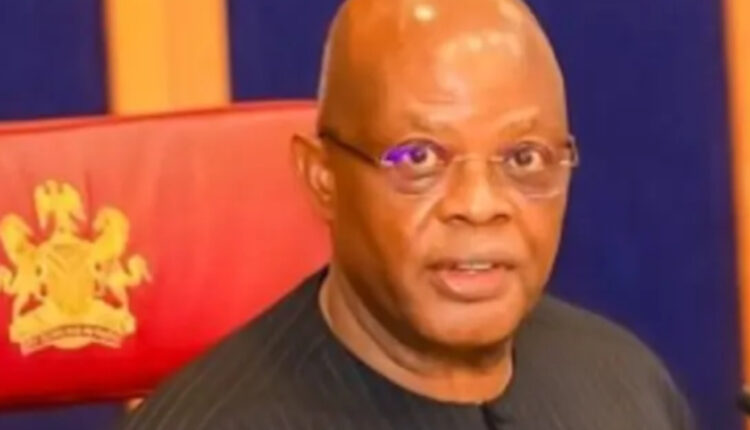Governance That Listens: The Untapped Power of Women in Rivers State
By Victoria Gbemisola
Across the waterways of Opobo and the bustling inland towns of Rivers State, one truth is constant. Women hold society together. They manage homes, run small businesses, care for the elderly, and educate the next generation. Yet, when the decisions that affect their daily lives are made, their voices are too often left out. This silence, however, is beginning to fade.
Under the leadership of Ibok-Ette Ibas, Rivers State is experiencing a quiet but powerful revolution in the way women are engaged. Emergency governance is often seen as a stopgap, but this administration is showing that it can also be an opportunity for deep reform. Women, who were once pushed to the periphery of policy dialogue, are now being brought to the centre.

One of the most visible changes has come through the state’s series of town hall engagements. These meetings have travelled across the three senatorial districts, opening spaces where women from every walk of life are invited to speak freely. In these forums, retired teachers, midwives, traders, and farmers have stood up to share their stories and suggest solutions to their community’s problems. The listening ear of government, long absent, has returned.
What makes this approach striking is that it does not treat inclusion as a tick-box exercise. These town halls are not performances. They are planning sessions, where the lived experiences of women help shape budget priorities and guide resource allocation. The issues raised are not just noted. They are acted upon. Several women’s groups have requested improved sanitation in local markets, and within weeks, construction work began. Health concerns brought up by rural midwives are now being prioritised in public health outreach programmes.
This is governance that listens. And listening has made all the difference.
One particularly impactful example is the support given to women-led agricultural cooperatives. With government assistance, these groups are transforming the rural economy. They are pooling resources, planting better crops, and bringing produce to market faster. The administration has provided seeds, tools, and training to ensure they succeed. This is not charity. It is investment in the economic drivers of the state.
The state is also investing in better data. For the first time, a gender-focused needs assessment is being conducted. It looks at healthcare, education, and access to credit through a lens that reflects the daily struggles of women. With that data, policies are being tailored to respond to reality rather than assumptions. It is a step that brings Rivers State closer to building a government that works for all.
The emotional impact of this approach is equally important. For decades, women in Rivers State have shown resilience in the face of neglect. Now they are not just resilient. They are being recognised. They are speaking at state forums, leading community development projects, and mentoring the next generation of girls. There is a sense that the tide has finally begun to turn.
To be sure, there are challenges. Cultural expectations still slow down change. Some institutions remain stuck in old habits. But the difference now is that there is a willingness to confront these problems. The Ibas administration is not waiting for the perfect moment to include women. It is creating that moment.
And this inclusion is not limited to women with titles or positions. The aim is to make every woman feel like she has a seat at the table. The goal is clear. A government that listens is a government that learns. A government that learns can serve better, spend wiser, and act quicker.
This inclusive strategy is also changing how governance is perceived. It is building trust. Citizens, particularly women, are beginning to see public officials not as distant bureaucrats but as allies. That shift in perception is powerful. It brings governance closer to the people. And that, more than any policy document, is what makes reforms sustainable.
Girls in secondary schools are now hearing stories of women like themselves who spoke up and saw change. They are watching mothers and aunties participate in government meetings. And they are learning, quietly but surely, that their voices matter. This generational shift, if nurtured, could redefine leadership in the state for decades to come.
As the state navigates the complexities of emergency governance, this women-focused approach is becoming one of its most important legacies. It has shown that inclusion is not a burden. It is a strategy. One that strengthens governance, builds resilience, and promotes peace.
In a time of national uncertainty, Rivers State is giving the country a lesson in what is possible when leaders listen. When they make room at the table. When they govern not just from above but from among the people.
The journey is far from over. More voices need to be heard. More institutions need to change. But what is happening now is a start. A real start. And women are leading the way.
The untapped power of women is not just a slogan. It is a reality that this administration is bringing into the light. It is a force that, once recognised and supported, can transform not only communities but the character of governance itself.
In Rivers State, that transformation has begun. And the voices of women, long silenced, are now shaping the sound of progress.
Victoria Gbemisola writes from Bori

